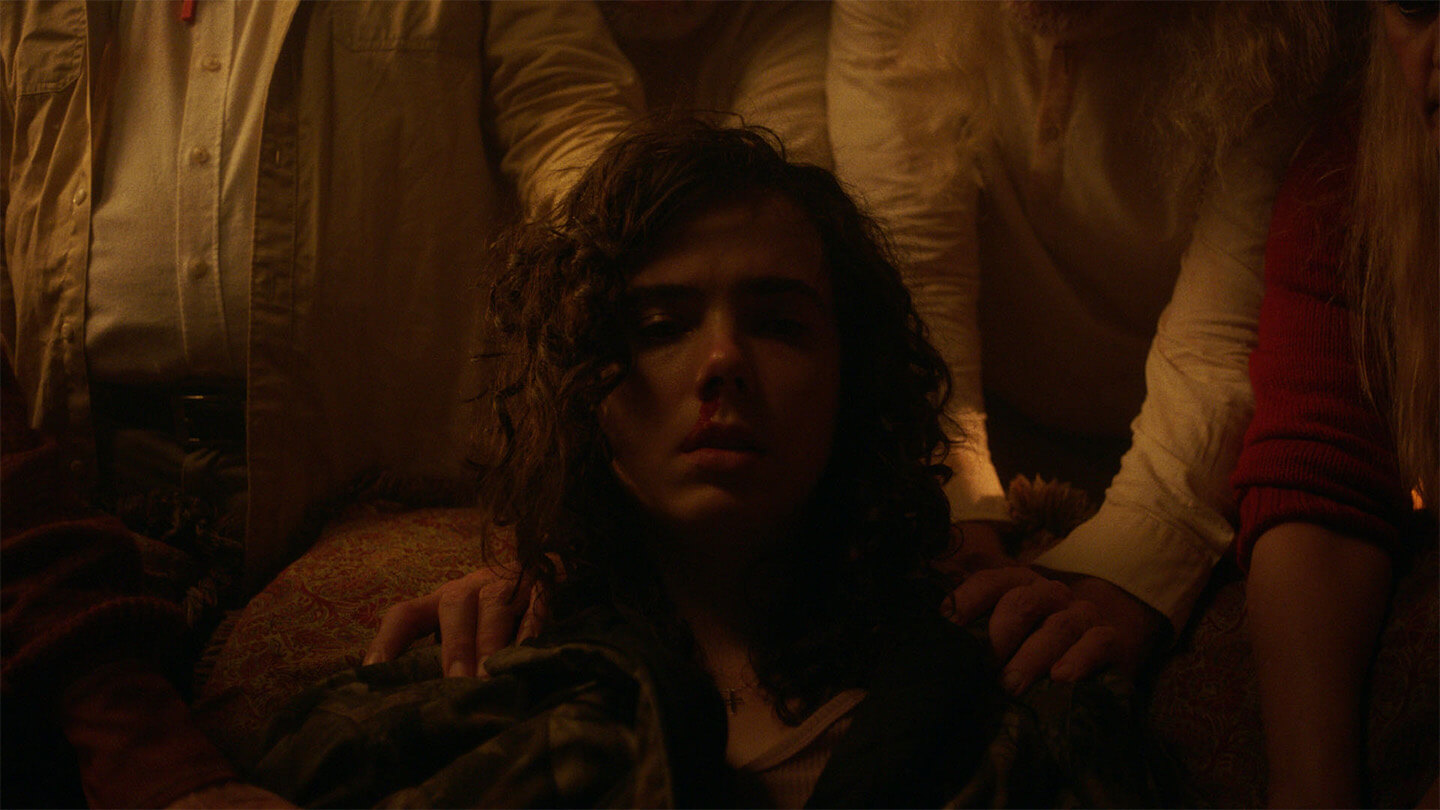In The Spirit Became Flesh, a rural community responds to its gradual disintegration by erecting a new god to worship. At 17 minutes long, director Jesse Parker Aultman packs in a narrative of desperation, the meanings of home, and the horror they are inherently capable of invoking. At the heart and the end of it, horror is really just mutated tragedy.
The world and the rural clash when the protagonist, Sam (Christopher Dietrick) returns from New York to visit his Alabama home. The house is falling apart. His parents are dead. The only family he has left is his sister, Lilah (Chloe Baldwin), who will not hear of moving away from their home. A certain degree of guilt makes itself felt through Lilah; Sam left her behind when he went to New York. The tension between the siblings becomes apparent within the first two minutes of the film as Sam broaches the topic of Lilah moving to New York with him. A need to reassert himself must also exist if his life in the big city did not quite work out. Homecoming then becomes a commemoration of guilt and the failure to preserve the rural to urban arc.
In the absence of her parents, the community’s elders play an active role in Lilah’s life. And now, by extension, in Sam’s life. They come to welcome him, and immediately, Sam sees red. Quite literally, as they come in the night carrying red lanterns. The community, now become a cult, have come to induct Sam, bringing out their worshipped creature for Sam to see in all its glory. The barely noticeable reds of the colour scheme now overwhelm the frame at every turn. Everything is a sickening red, the shots becoming increasingly unbalanced. Sam reacts by hurling into a toilet.
Within the space of an evening, he has seen the ugly face of communal degeneration and must confront the question, what can he do about it? It is no ghost, because the ghost has now become flesh, and thus Sam decides he must do what he could not as a child: shoot an animal dead. Modern sensibilities clash with rural instincts born of experience, yet the film wisely does not try to romanticise it in either direction. But the narration is overtaken by the voice of the cult, pointing to where the control lies.
The consequences of Sam’s decision is surprising in their ability to disturb, demanding more thought than an easy ending. What does remain easily understandable is the nature of home. It is where the roots may stubbornly haunt: gnarly, deep, spectral.
Watch The Spirit Became Flesh Short Film Trailer
The Spirit Became Flesh: Guilt and Decadence Take Shape and Take Over
-
Direction
-
Cinematography
-
Screenplay
-
Editing
-
Music
